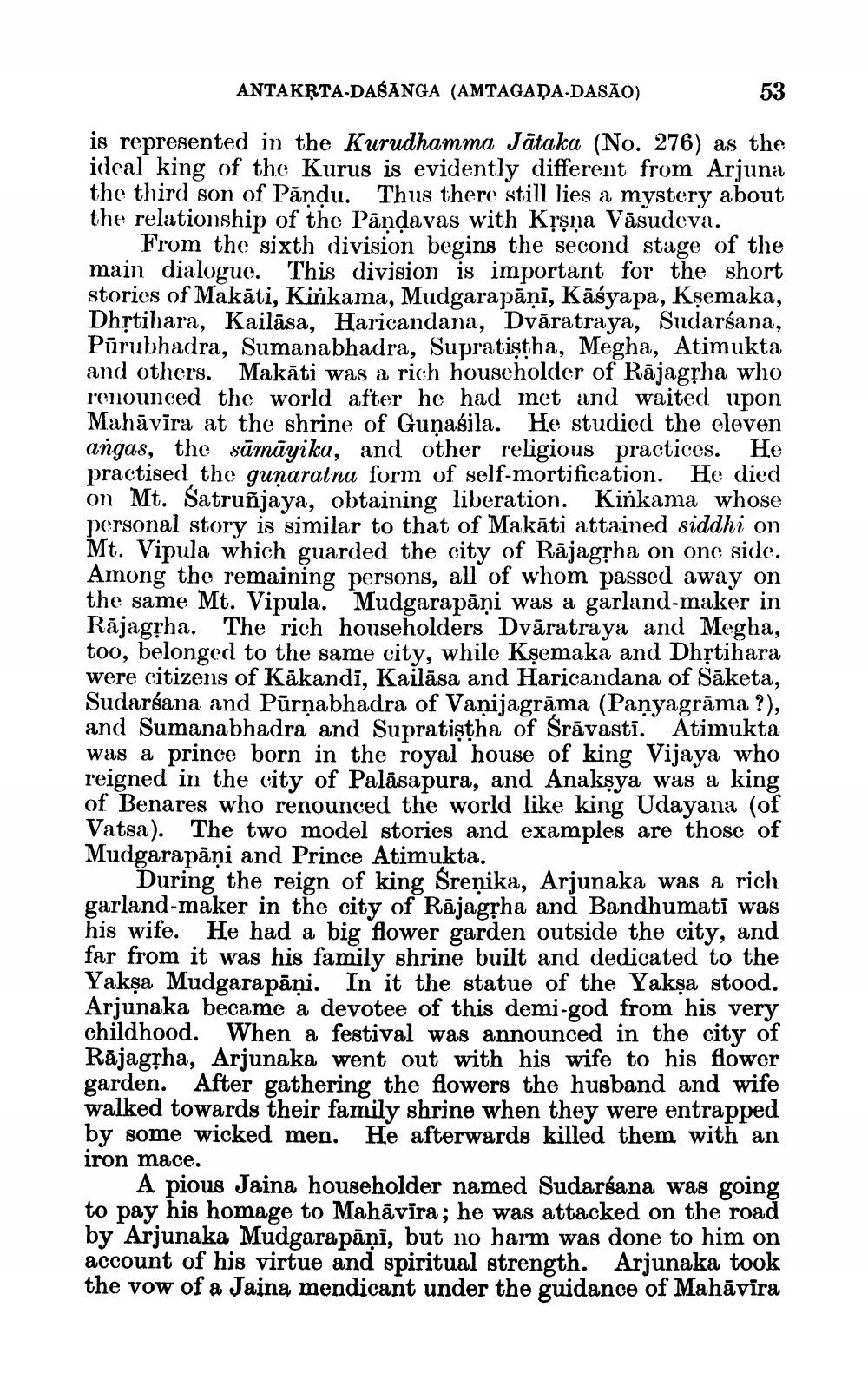________________
ANTAKRTA-DASANGA (AMTAGADA-DASÃO)
53
is represented in the Kurudhamma Jätaka (No. 276) as the ideal king of the Kurus is evidently different from Arjuna the third son of Pāndu. Thus there still lies a mystery about the relationship of the Pāndavas with Krşņa Vāsudeva.
From the sixth division begins the second stage of the main dialogue. This division is important for the short stories of Makāti, Kinkama, Mudgarapāņi, Kāśyapa, Kșemaka, Dhștihara, Kailāsa, Haricandana, Dvāratraya, Sudarsana, Pūrubhadra, Sumanabhadra, Supratiştha, Megha, Atimukta and others. Makāti was a rich householder of Rājagặha who renounced the world after he had met and waited upon Mahāvīra at the shrine of Guņašila. He studied the eleven angas, the sāmāyika, and other religious practices. He practised the gunaratna form of self-mortification. He died on Mt. Satruñjaya, obtaining liberation. Kinkama whose personal story is similar to that of Makāti attained siddhi on Mt. Vipula which guarded the city of Rājagļha on one side. Among the remaining persons, all of whom passed away on the same Mt. Vipula. Mudgarapāņi was a garland-maker in Rājagpha. The rich householders Dvāratraya and Megha, too, belonged to the same city, while Kşemaka and Dhștihara were citizens of Kākandi, Kailāsa and Haricandana of Sāketa, Sudarśana and Pūrņabhadra of Vanijagrāma (Panyagrāma?), and Sumanabhadra and Supratiştha of Srāvasti. Atimukta was a prince born in the royal house of king Vijaya who reigned in the city of Palāsapura, and Anaksya was a king of Benares who renounced the world like king Udayana (of Vatsa). The two model stories and examples are those of Mudgarapāņi and Prince Atimukta.
During the reign of king Śrenika, Arjunaka was a rich garland-maker in the city of Rājagpha and Bandhumati was his wife. He had a big flower garden outside the city, and far from it was his family shrine built and dedicated to the Yakşa Mudgarapāņi. In it the statue of the Yakşa stood. Arjunaka became a devotee of this demi-god from his very childhood. When a festival was announced in the city of Rājagpha, Arjunaka went out with his wife to his flower garden. After gathering the flowers the husband and wife walked towards their family shrine when they were entrapped by some wicked men. He afterwards killed them with an iron mace.
A pious Jaina householder named Sudarsana was going to pay his homage to Mahāvira; he was attacked on the road by Arjunaka Mudgara pāņi, but no harm was done to him on account of his virtue and spiritual strength. Arjunaka took the vow of a Jainą mendicant under the guidance of Mahāvīra




